Content from The Globe’s weekly Women and Work newsletter, part of The Globe’s Women’s Collective. To subscribe, click here.
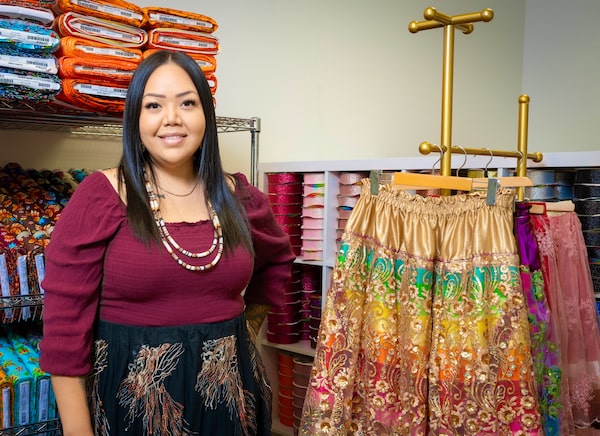
Artist and seamstress Ashley Michel built a following on TikTok and will soon open her first bricks-and-mortar store.Dennis Owen
If you’ve ever bought something after an influencer shared it on Instagram or eaten in a restaurant because you saw someone rave about it on TikTok, you understand how social media has transformed the way the world does business.
These platforms have created untold opportunity for creators and business owners, particularly those who might be under-represented in more traditional spheres.
Case in point? The four Indigenous creators you’ll meet below, who have harnessed the power of social media – in particular TikTok, the fastest-growing social app – to grow their ventures while also celebrating their cultures and heritage.
Marika Sila
Canmore, Alta.
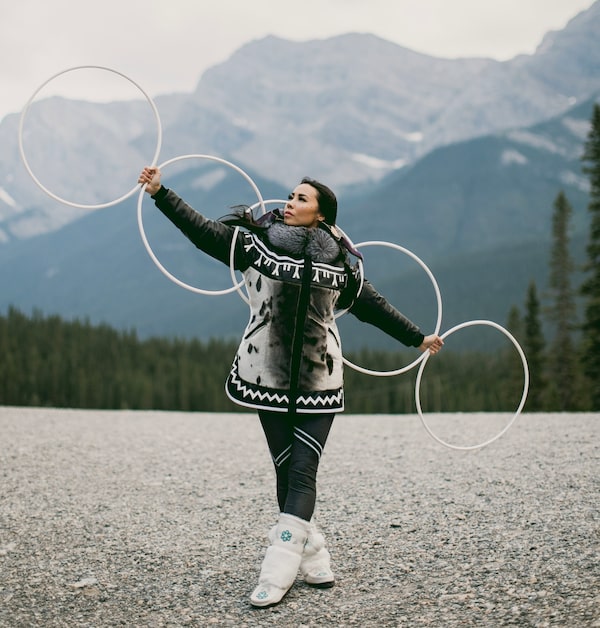
Marika Sila’s ambition has always been twofold: To build a career as a performer and have a platform to express the things she’s passionate about. Social media enables her to do both.
“It’s allowed me to have more control over my career and my future,” says Ms. Sila, an Inuvialuk actor, stunt performer, content creator and self-described “small town Inuk living my best life.”
For example, she credits her social media presence – over one million followers between Instagram and TikTok – with helping her land acting gigs.
“Producers and directors see the audience that I already have that comes with me wherever I go,” she says. “That’s incentive for them to hire me, because any project that I’m on, they know there’s a solid audience behind me.”
Ms. Sila says her income from content creation, generated through paid brand partnerships, forms a larger share of her income than acting, particularly with recent strikes in the film and TV industry. “It’s provided me with so much financial freedom, to be able to travel the world and continue doing what I love.”
She says social media is also a way for her to give back to her community. TikTok, for example, is both a place to build her personal brand and a way to share and celebrate Inuk culture, whether that’s hoop dancing or carving snow blinders with her dad. (That video has nine million views and counting.)
The most rewarding part for her, she adds, are messages and comments from other Indigenous women or youth saying, “Because of you, I’m so proud to be Inuk.”
And while Ms. Sila treats social media as a full-time job – she can spend eight hours a day shooting and editing video – she’s recently been embracing a lighter, more spontaneous approach.
“Right now, I’m leaning into just sharing Indigenous joy, because there’s so much hate in this world, and it’s so important to share joy, because there’s healing in finding and following that.”
Ashley Michel
Kamloops, B.C.
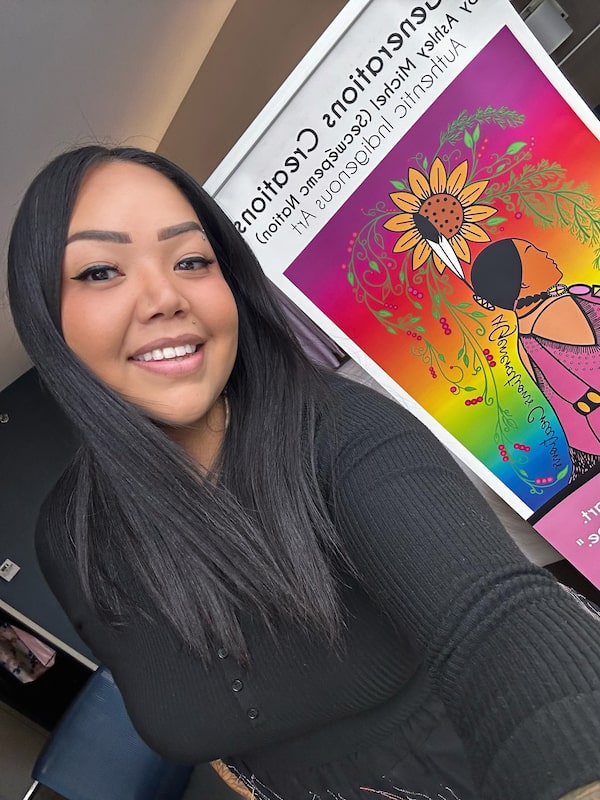
Ashley Michel is the self-taught seamstress and artist behind 4 Generations Creations, which sells fabric, beads, ribbon skirts (a culturally-significant garment worn by Indigenous women, often on special occasions like powwows) and kokum scarves, which are floral-patterned head coverings that hark back to trade between Ukrainian settlers and Indigenous peoples on the Prairies.
Like many of us, Ms. Michel learned a new skill when the pandemic forced her to adapt her business. In her case, it was digital drawing, using a stylus and tablet to create artwork which she then placed on everything from apparel and stickers to totes and pins.
“My designs educate others about Indigenous issues, and resiliency as well,” says Ms. Michel, who shares glimpses into daily life as an Indigenous entrepreneur on TikTok. “It’s not just about focusing on the past history, but also uplifting our people by having that representation for the future generations to come.”
Ms. Michel’s social media platform – including more than 167,000 followers on TikTok – has translated into business boosts. Case in point? When she made a video about a new sticker Indigenous collection she’d created, it went viral, selling out her inventory of that release. This enabled her to invest in a heat press and a Cricut cutting machine, helping her business grow further.
According to Ms. Michel, Indigenous people are “naturally born storytellers,” and she sees her artwork and social media presence as emblematic of that.
“To be able to use my art and my creative side to educate others in a good way is really important to me,” says Ms. Michel, who is participating in this year’s TikTok Accelerator for Indigenous Creators. “Growing up, I didn’t have the authentic representation that I needed, so it’s important to me, having a nine-year-old daughter, that she has that – not only in me but in other Indigenous businesswomen and businessmen using social media as a platform.”
Melissa Blair
Turtle Island, Ont.
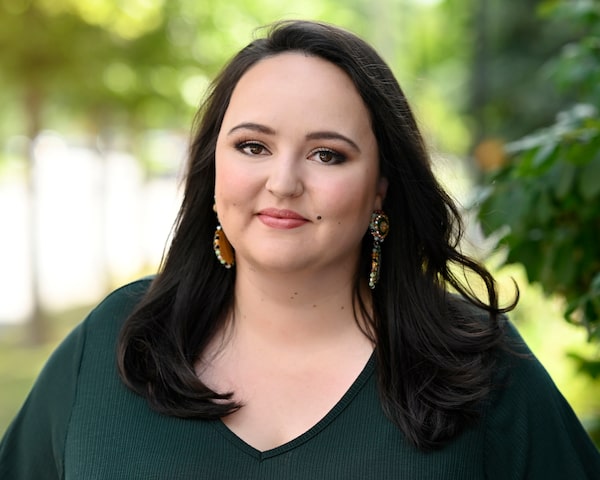
Lindsey Gibeau
When Melissa Blair joined TikTok, her only plan was to share her love for books; in particular, titles that reflected a breadth of Indigenous experience beyond “trauma stories” and painful history. She’d always wanted to be an author herself and had, in fact, written several books, but never gained any traction with publishers.
During the pandemic, spurred by the strange madness of lockdown, she self-published A Broken Blade, a fantasy adventure about a royal assassin. The book went viral on BookTok – TikTok’s dedicated and active community of book lovers – thanks to some clever marketing on her part.
“I released it anonymously, and I sent it to a bunch of BookTok-ers, many of whom were mutuals of mine who had no idea I was writing a book,” says Ms. Blair. “I started a scavenger hunt with clues that were in the book and in letters I sent [with] the book.” This launched a “world-wide mystery” that captured BookTok’s attention for an entire month.
Two years later, Ms. Blair is still processing what happened next: She recouped her self-publishing costs within three days, signed a deal with a traditional publisher, Union Square & Co, and wrote two more books in the Halfling Saga. This past May, she left her job in the non-profit space to write full-time. “I’m just starting to enjoy things now, because it created such a storm that [is] only now settling,” says Ms. Blair.
She is keenly aware that she wouldn’t likely have had this sort of success without social media. “BookTok birthed my whole career,” she says. She points out that it’s bittersweet, though, because it demonstrates how much structural inequality and ingrained prejudice still exists in the book world, as elsewhere.
“For Indigenous people and a lot of marginalized voices, you don’t get noticed by the publishing industry until you prove you can create an audience and there’s an interest there,” says Ms. Blair, who has 45,000 followers on TikTok.
Now, Ms. Blair is determined to help carve out more space for other Indigenous authors. Change is happening in the industry, she says, but it’s slow.
“That’s one thing I love about BookTube [YouTube’s book-loving community] and BookTok – there are some really great champions out there who make books by marginalized people so popular and support them in a way publishers haven’t.”
Mallory Yawnghwe
Edmonton
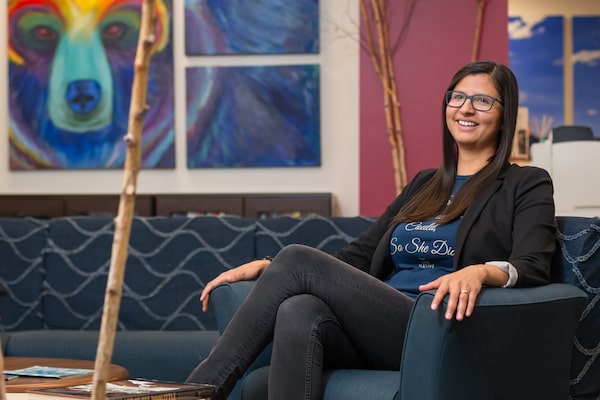
When Mallory Yawnghwe launched Indigenous Box from her basement in March 2021, her business plan was to sell 1,000 boxes by the end of the year.
Instead, social media got behind her story, shared on TikTok, and she was able to transform a $5,000 grant into $1.2-million in revenue by the end of the company’s first corporate year.
“Our community did it for us,” she says. “I don’t think we could have had the same success or reach without social media.”
In truth, even before that viral moment, Ms. Yawnghwe’s ambition was much larger than just moving product: It was to start a movement toward economic reconciliation by creating sales channels for Indigenous entrepreneurs while providing business mentorship and support.
“What we do is prosperity building,” says Ms. Yawnghwe, who comes from the Saddle Lake Cree Nation in Treaty 6 territory in central Alberta. “We’re giving people the opportunity to be sovereign people, to have economic independence for themselves and their families.”
The boxes curated by Indigenous Box include products – from snacks to mugs to fragrant soaps – made by more than 300 Indigenous suppliers. They can be purchased individually or through gifting by corporations, non-profits and governments.
Ms. Yawnghwe says social media plays a vital role in the company’s work. Its TikTok – 13,000 followers strong – is a conversation starter, helping to fill in the gaps many Canadians have in their understanding of Indigenous people, including their vastly underestimated role in the economy of this country.
“TikTok gave us the opportunity to share little snippets, easy digestible ways to talk about who we are as Indigenous people [and] our role in economic reconciliation, being rooted in tradition but also navigating modern e-commerce,” says Ms. Yawnghwe, a supply chain management professional by trade.
It’s also about connecting with young Indigenous people on their platform of choice, she adds.
“They get to see businesses like ours, hear stories about people like me who are in these positions where we’re taking risks, we’re trying to effect change in the best way we know how to,” says Ms. Yawnghwe. “Indigenous kids can say, ‘Look what she’s doing, I could do that too. I could start a brand; I can be a CEO.’”

Stacie Campbell/The Globe and Mail
Interested in more perspectives about women in the workplace? Find all stories on The Globe Women’s Collective hub here, and subscribe to the new Women and Work newsletter here. Have feedback? E-mail us at GWC@globeandmail.com.